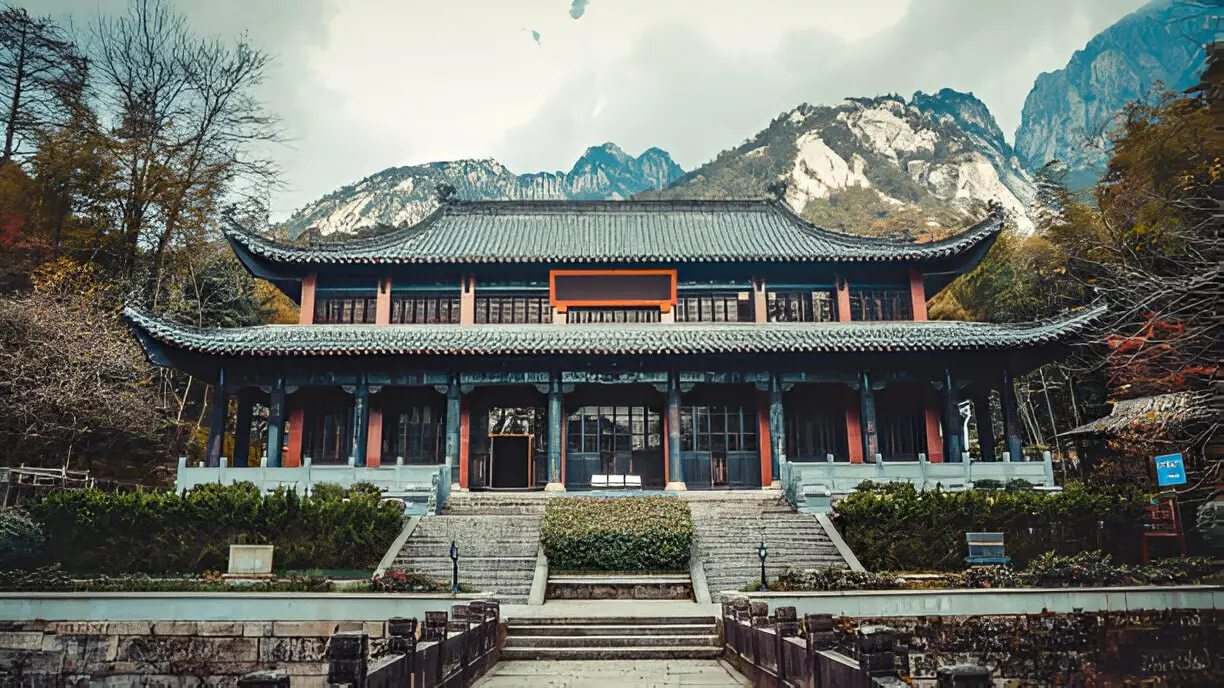Anheihe: A Closer Look at the Traditional Practices and Beliefs
Introduction
Step into the enchanting world of Anheihe, a culture rich in tradition and steeped in history. Join us on a journey to explore the fascinating beliefs and practices that have shaped this ancient society. From its origins to its modern-day significance, discover the captivating story of Anheihe and why it continues to intrigue and inspire today.
The Origin and History of Anheihe
Anheihe, a traditional belief system with deep roots in cultural heritage and practices, traces its origins back to ancient times. Passed down through generations, the history of Anheihe is shrouded in mystique and reverence among its followers.
The precise beginnings of Anheihe are veiled in folklore and oral traditions that have been safeguarded by elders within the community. It is said that the teachings of Anheihe were bestowed upon chosen individuals by ancestral spirits who sought to guide their descendants toward harmony with nature and spiritual enlightenment.
Through rituals, ceremonies, and sacred rites, practitioners of Anheihe have upheld these traditions as a way to honor their ancestors and connect with the spiritual realm. The rich tapestry of stories woven into the fabric of Anheihe’s history continues to captivate those who seek to understand its profound significance in today’s world.
Key Beliefs and Practices in Anheihe Culture
Anheihe culture is rich in unique beliefs and practices that have been passed down through generations. One key belief is the connection to nature, where the elements are seen as sacred and holding spiritual significance. This reverence for nature is reflected in rituals and ceremonies that honor the earth, water, fire, and air.
Connection to Nature
The elements in Anheihe culture are considered sacred, each holding a specific spiritual significance. Rituals often involve offerings to these elements, seeking balance and harmony in life. For instance, water ceremonies might involve the blessing of rivers and lakes, symbolizing purity and life. Fire rituals may be conducted to symbolize transformation and energy, connecting the physical and spiritual worlds.
Community and Unity
Another important aspect of Anheihe culture is the emphasis on community and unity. The practice of coming together in times of celebration or hardship strengthens bonds among individuals and fosters a sense of belonging. Shared experiences create a collective identity that transcends individual differences. Festivals and communal gatherings are common, where stories are shared, and collective prayers are made for the well-being of the community.
Storytelling
Anheihe traditions also include storytelling as a way to preserve history, pass down wisdom, and teach moral lessons. Through myths, legends, and folklore, knowledge is transmitted from one generation to the next, keeping the culture alive and vibrant. These stories often contain moral lessons and serve as educational tools for younger generations, instilling values and ethical principles.
These key beliefs and practices form the foundation of Anheihe culture, shaping its values and guiding its people in their daily lives.
Significance of Anheihe in Modern Society
In modern society, the significance of Anheihe resonates deeply with those seeking a connection to their roots and cultural heritage. The traditional practices and beliefs of Anheihe offer a sense of belonging and identity in a rapidly changing world.
Embracing Anheihe Values
The values upheld by Anheihe, such as community unity, respect for nature, and ancestral wisdom, provide a guiding light for individuals navigating the complexities of contemporary life. These teachings promote harmony within oneself and with others. The emphasis on community support and unity can be a powerful counterbalance to the often individualistic tendencies of modern life.
Rituals and Ceremonies
Through embracing Anheihe culture, people can find solace in traditions that have withstood the test of time. The rituals and ceremonies associated with Anheihe serve as reminders of the importance of honoring our past while moving toward the future. These practices can provide a sense of stability and continuity, helping individuals to feel connected to something larger than themselves.
Intergenerational Connections
By integrating elements of Anheihe into daily life, individuals can cultivate a deeper appreciation for their cultural background and foster intergenerational connections. In doing so, they contribute to preserving this rich heritage for generations to come. Teaching children the stories, rituals, and values of Anheihe ensures that this ancient culture continues to thrive.
Controversies Surrounding Anheihe
Controversies have always swirled around the traditional practices and beliefs of Anheihe, sparking debates among scholars and communities alike. Some critics argue that certain rituals or customs within Anheihe culture are outdated or oppressive, while others believe they hold deep cultural significance. The clash between tradition and modern values often leads to heated discussions on whether certain practices should be preserved or abandoned.
Tradition vs. Modernity
The tension between preserving ancient practices and adapting to modern values is a common source of controversy. Some traditional rituals may be seen as incompatible with contemporary social norms, leading to debates about their relevance and appropriateness. This dichotomy often forces communities to confront difficult questions about identity and change.
Secrecy and Exclusivity
Another controversial aspect of Anheihe is its perceived secrecy and exclusivity, with some outsiders feeling excluded from understanding the intricacies of this ancient culture. This lack of transparency can fuel misconceptions and misunderstandings about Anheihe traditions, leading to further tensions between different groups. Advocates argue that some level of exclusivity is necessary to protect the sanctity of their practices.
Despite these controversies, many advocates for Anheihe argue that preserving these traditions is essential for maintaining cultural identity and heritage. Finding a balance between honoring the past while adapting to modern times remains a delicate challenge for those seeking to bridge the gap between tradition and progress in today’s world.
Preserving and Celebrating Anheihe Heritage
Preserving and celebrating Anheihe heritage is vital to honoring the rich history and traditions of this ancient culture. Through various initiatives, communities strive to pass down ancestral knowledge and customs to future generations.
Storytelling and Oral Traditions
One way to preserve Anheihe’s heritage is through storytelling – sharing myths, legends, and historical accounts that have been passed down for centuries. These narratives provide valuable insights into the beliefs and values of the Anheihe people. Elders often play a crucial role in this process, ensuring that the stories are accurately and faithfully transmitted.
Traditional Ceremonies
Celebrating Anheihe heritage involves participating in traditional ceremonies and rituals that have deep symbolic meanings. These events not only showcase cultural practices but also foster a sense of unity among community members. Festivals and public celebrations serve as a vibrant display of Anheihe culture, inviting participation and fostering a sense of pride.
Revitalizing Traditional Crafts
Efforts to preserve and celebrate Anheihe heritage can also involve revitalizing traditional crafts such as weaving, pottery-making, or wood carving. By supporting local artisans and craftsmen, we help ensure these skills are kept alive for future generations to appreciate. These crafts not only serve as a connection to the past but also provide a means of livelihood for community members.
Conclusion
As we delve into the rich tapestry of Anheihe culture, it becomes evident that this traditional belief system has deep roots and a profound impact on society. The practices and beliefs passed down through generations have shaped communities and individuals in unique ways.
While some controversies may surround certain aspects of Anheihe, it is crucial to remember the importance of preserving and celebrating this heritage. By honoring the traditions and values of Anheihe, we not only pay respect to our ancestors but also keep alive a part of our identity.
In modern times, as societies evolve rapidly, embracing the teachings of Anheihe can provide grounding principles that promote harmony, unity, and connection with nature. Let us continue to learn from these ancient traditions and carry forward their wisdom for future generations to appreciate.






